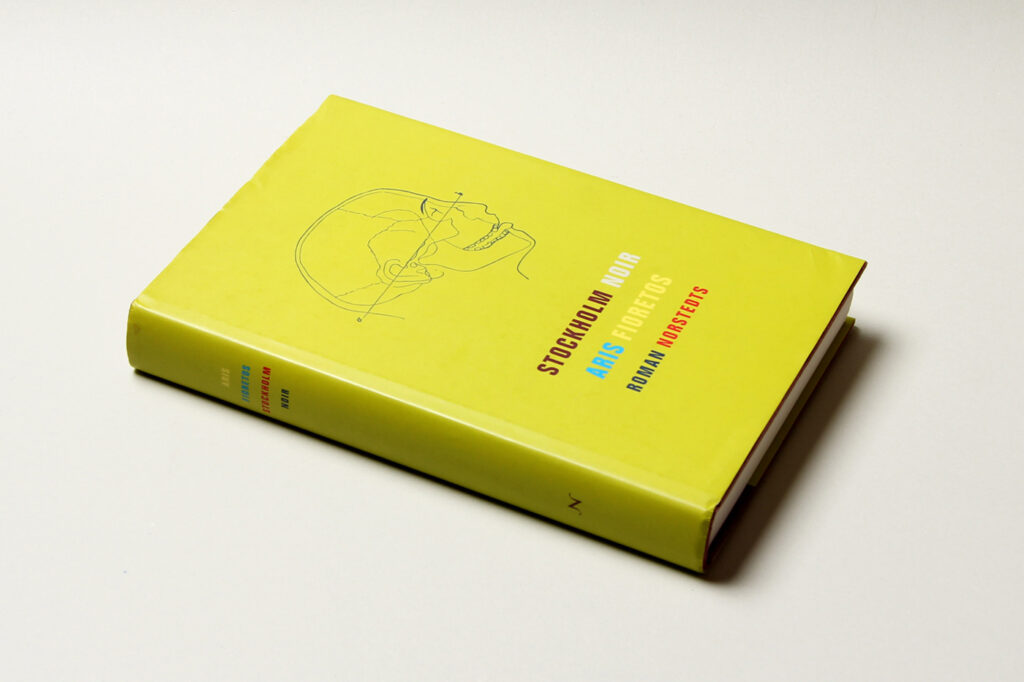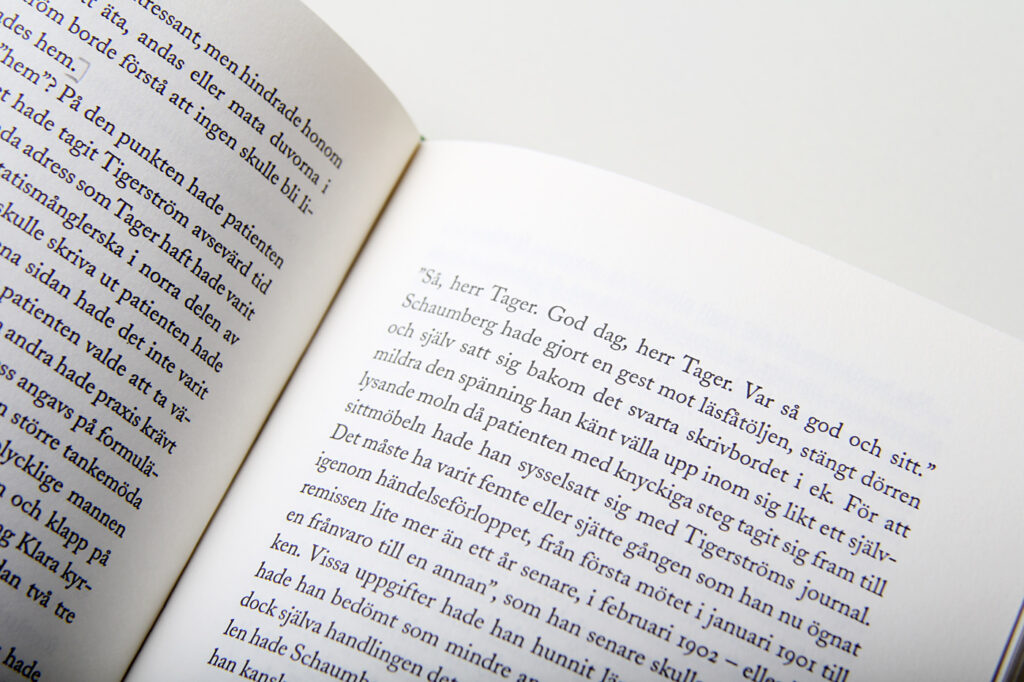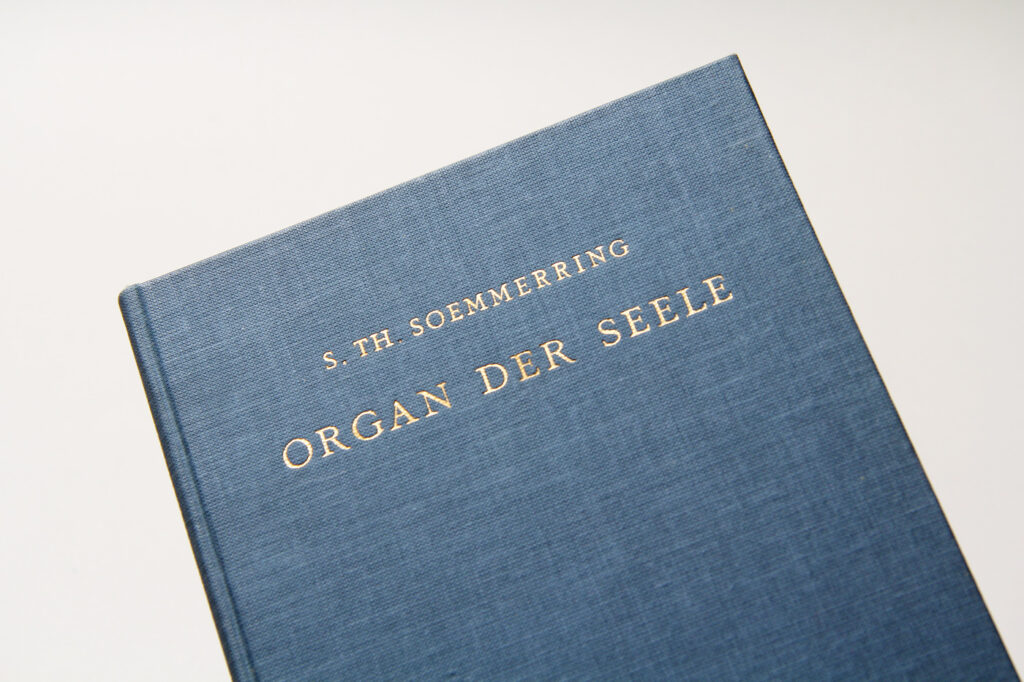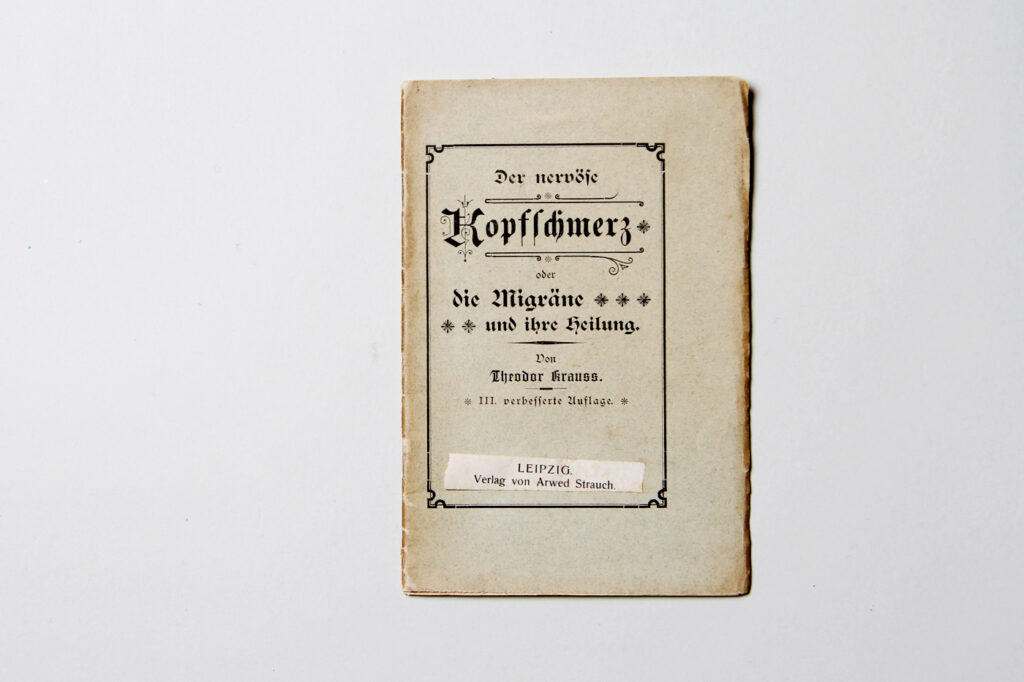






Stockholm noir
Information · Cover · Reviews
Information
Novel · In Swedish · Stockholm: Norstedts, 2000, 326 pages · Design: Lotta Kühlhorn · Cover: »Skull of German (Girl) in profile (1/3 size)« · ISBN: 91-1-300825-0 · Revised and reissued in Swedish as Irma, 25 in 2019, as the first volume of the trilogy Den nya människan (New Man) · English language rights available
Cover
In December 1925, young Vera Grund, who works in an advertising agency, takes the train from Berlin to Stockholm. She is embarking on a journey into her own past, bringing along some clothes, a city map, and a couple of addresses. During the three days she will spend in the capital of Sweden, wrapped in snow and darkness, she will be looking for the father she has never known. At the same time, professor Schaumberg is leafing through his files in an old private palace in the center of town. A former “soul biologist,” he is a fervent scientist, whose determined ambition, for more than fifty years, has been to locate the proper place of the soul in the human brain. Once he was a celebrated member of the Swedish Academy and the founder of the mythical “Club of Brains.” Vera’s and the professor’s fates are more closely connected than either of them know as yet. As the train arrives in Stockholm, the last act of the “biological drama” can begin.
Stockholm noir is partly based on real events. It is a biological thriller, a dark tale about the wonders of the brain and the soul’s errant nature. But it is also a lyrical portrait of a city that marks its inhabitants in ways both puzzling and marvelous.
Reviews
“. . . [V]ivid, fascinating, rewarding, entertaining — in fact, everything you could possibly ask for in a good work of fiction. Aris Fioretos is not merely philosophically and technically gifted, he also possesses . . . a feeling for detail, movement, facial expression, speech, and so on, which add a necessary dose of humor, without turning [the story] into a caricature . . . If I had to choose one newly published work to read this year, this would be it!” — Viktor Björklund, Gefle Dagblad
“Fioretos’ book is like a creatively irrational, but beautiful chiffonnier — full of shutters in ornate intarsia that can hardly be opened, behind which a yellowed and compromising correspondence is hidden; tiny, delicate drawers with keys to locks long lost; cases with old instruments and scientific preparations; secret compartments and double bottoms. It is a fantastic story, and also a richly evocative historical tapestry . . . Fioretos is . . . a daring miracle maker, who, with the playful body and waving arms of language, makes angels in the snow and blows, from their frozen hands, the most terrestrian butterflies of sensual impression.” — Tobias Berggren, Kulturnytt
“A magical, shimmering prose that is written seemingly freely and associatively. But that is only appearance. Fioretos leaves nothing to chance. Except the reader, of course. Which is liberating. Aris Fioretos is a writer thoroughly conscious of language — a joker of language . . . As you may understand, I’m impressed by Fioretos’ narrative art. It resembles that of no other Swedish writer.” — Stefan Eklund, Borås Tidningar
“Fioretos [has] never been as original as now. Paradoxically, when his prose employs the means of pastiche, his singularity radiates even more.” — Johan Dahlbäck, Expressen
“Stockholm noir [is] full of surprises, beautiful ones. The novel is a ‘classical’ epic in the best sense, a piece of honest storytelling, if the expression may be allowed, which not only means that the reader is immediately drawn into a world that in all respects is credible, is engrossed and seduced by the descriptions of milieu and people, as well as raptured by the delicate plot, enhanced also by the fact that the writer, with an unerring sense of prudence, only intervenes so often that the respect for both characters and readers is maintained, and only on occasions when the intervention is able to contribute further qualities to the plot — be they of a sad, comic, or scientific nature. That is: Fioretos has written nothing short of an excellent novel.” — Kristina Lundblad, Kvällsposten
“. . . funny and wicked . . .” — Tomas Larsson, Östersunds-Posten
“. . . magically glowing . . .” — Johan Lundberg, Svenska Dagbladet
“Aris Fioretos continues to extend the borders of different genres, and the result is always both personal and uncanny . . . [Stockholm noir is] a satire on Swedish academic grandiosity, calmly expanding, written in a decidedly Strindbergian spirit . . . [W]ith skilful irony, he lays an intarsia pattern of historical data, credible lies, and completely unverifiable subjectivity. . . . Thanks to the fact that the plot is shaped at once from within an intense, sensuous bodilyness and with the help of an abundance of precise stage props, its lucidity becomes almost magical. Everything remains very long before the reader’s inner eye .” — John Swedenmark,Göteborgs-Posten
“. . . the elegant writing from earlier books has developed into an almost impertinent lightness . . . Fioretos’s prose is very entertaining. . . . The entire tale is infused with a gentle humor . . . [The author] plays with the very form of the novel . . . and with a science the degenerate varieties of which were exploited during the 1930s.” — Michael Godhe, Norrköpings Tidningar
“Faced with the charm of Stockholm noir, Aris Fioretos’ first novel that appears today, I must . . . capitulate. The story is set in Stockholm and Berlin during a few cold winter days in 1925, and captures two very different lives and fates. With low-key humor and an evident delight in telling a story . . . , two parallel narratives are gradually interwoven, yielding a tall tale, both captivating and imaginative, sprung from the field of the history of science . . .” — Fabian Kastner, Uppsala Nya Tidningar
“In this his first full-scale novel, Aris Fioretos combines the shifting tensions of the detective story with the investigating methods of the historical novel of ideas. It is a story of high density . . . wrought with great skill . . . Very well done.” — Joen Gustafsson, Nöjesguiden
“Aris Fioretos now publishes a fantastic tale, a grand and rich novel with the title Stockholm noir. He gives evidence of exceptionally good spirits and a true delight in storytelling, a pleasure in writing, in pastiche, in the art of deception. . . . In the hands of Aris Fioretos, the city becomes more than a city . . ., it becomes an organism. The snowfall, people hurrying along the streets, matches that suddenly glow in the darkness, street lamps, sounds muffled by snow: all of this function as images and stories of what happens in the brain, the soul, when we think, feel, move about, and are moved. . . . Stockholm noir is a fantastic story, a latter-day cousin perhaps of the stories by Verne and Wells, but also sprung from a novelistic tradition that has the Big City as its theme and main character. The language is full of imagery, delicately wrought, roundabout without ever becoming taxing . . . Aris Fioretos has crafted a work rich in tones. Its smallest details, too, contribute to making the whole come alive. . . . [Stockholm noir] is limber and elastic. Like a body.” — Arne Johnson, Allt om Böcker